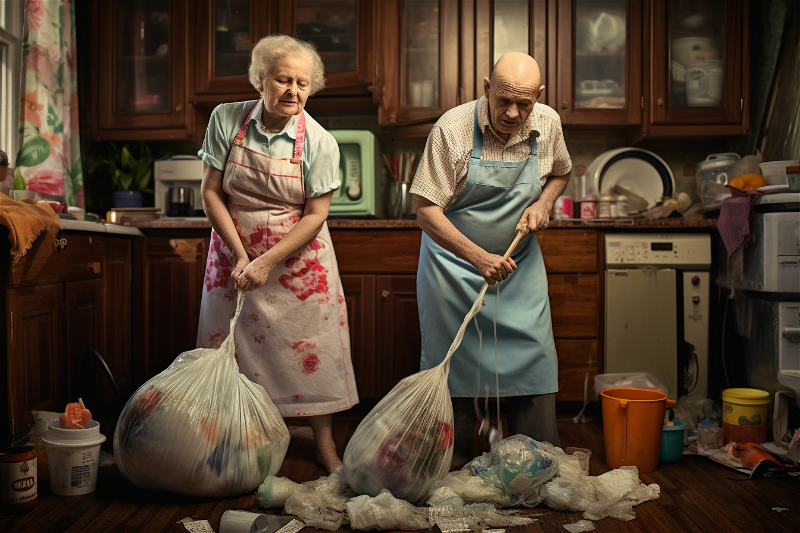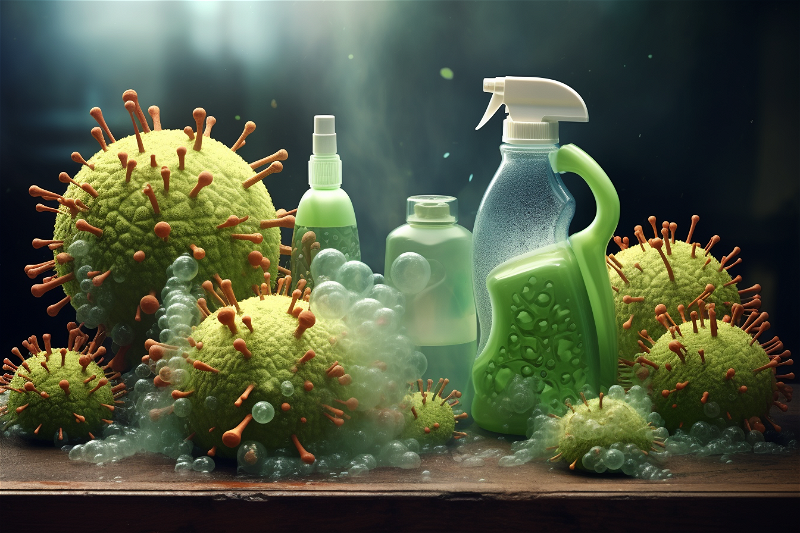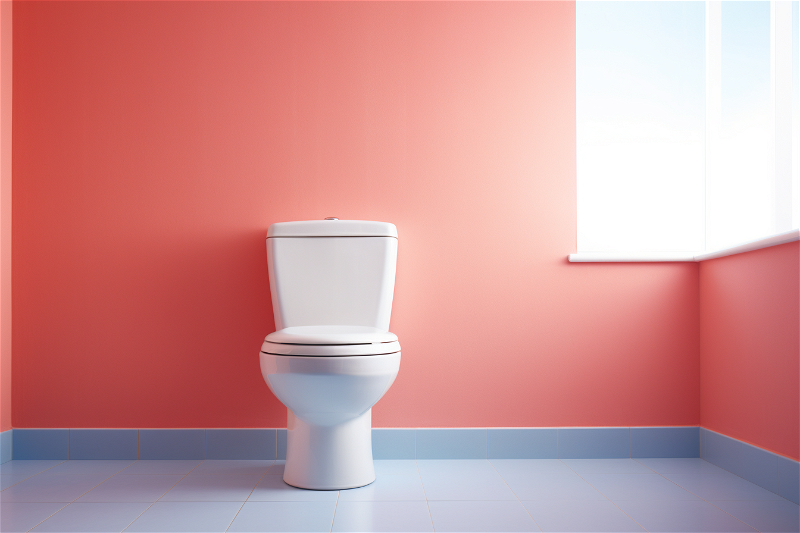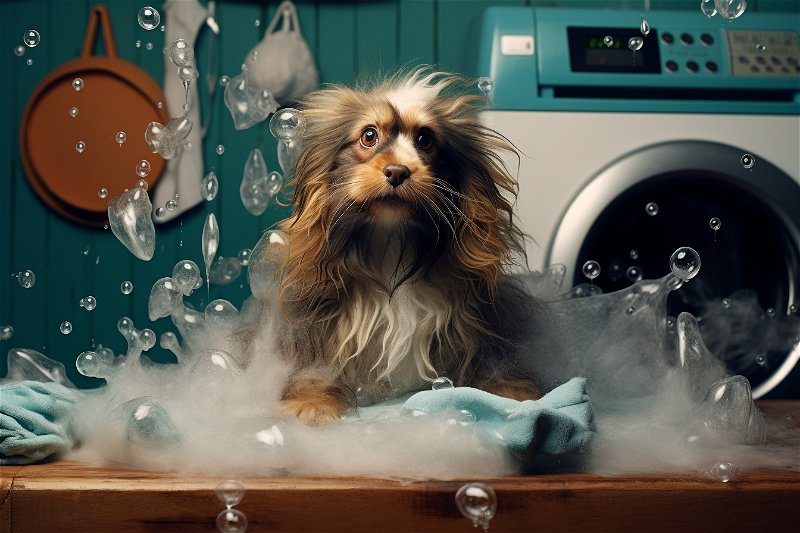
A clean and safe home is essential for everyone, but it becomes even more crucial for the aging population. As we age, our bodies and minds undergo changes that can make everyday tasks, such as cleaning, more challenging. However, maintaining a clean home is vital for seniors to ensure their well-being and quality of life. In this article, we will explore some practical cleaning tips specifically tailored to the needs of the aging population. By implementing these strategies, seniors can keep their homes clean, organized, and safe.
Understanding the specific needs of an aging population
As individuals age, they may experience physical limitations that can impact their ability to perform certain cleaning tasks. Conditions such as arthritis, reduced mobility, and decreased strength can make activities like bending, reaching high places, or lifting heavy objects difficult. Seniors may also tire more easily, which can further impede their cleaning efforts. Understanding these physical limitations is crucial in developing cleaning strategies that accommodate their needs.
Cognitive changes, such as memory loss or decreased attention span, can affect the ability of seniors to organize and maintain a cleaning routine. They may struggle with remembering where things belong, forget to perform necessary cleaning tasks, or become overwhelmed by the complexity of the cleaning process. Recognizing these challenges allows us to find solutions that simplify cleaning routines and provide support to seniors in maintaining a clean and organized home.
Aging can also bring about sensory changes that influence how seniors perceive their environment and engage in cleaning activities. Diminished vision may make it difficult to spot dirt, stains, or hazards. Reduced sense of smell can make it challenging to detect odors or identify spoiled food. By recognizing these sensory changes, we can adopt cleaning techniques that compensate for these limitations and ensure a thorough and safe cleaning process for seniors.
By taking into account the specific needs of the aging population, we can develop effective cleaning strategies that address physical, cognitive, and sensory challenges. In the following sections, we will delve into practical tips and techniques that seniors can implement to maintain a safe and clean home environment.
Creating a cleaning routine tailored to seniors
When developing a cleaning routine for seniors, it’s important to break down tasks into smaller, manageable chunks. Instead of attempting to clean the entire house in one session, divide the cleaning tasks into smaller sessions spread throughout the week. For example, focus on one room or area each day. By pacing oneself and taking breaks as needed, seniors can conserve energy and prevent exhaustion.
Seniors may not have the same level of energy or stamina as they did in their younger years. It’s important to set realistic goals and prioritize essential cleaning areas. Identify the areas that require regular attention, such as the kitchen, bathroom, and living room, and focus on those first. By setting achievable goals, seniors can maintain a clean and functional living space without feeling overwhelmed.
There are numerous adaptive tools and equipment available that can make cleaning tasks easier for seniors. Consider investing in long-handled dusters, mops, or vacuum cleaners to reach high or low areas without excessive bending or stretching. Lightweight and manoeuvrable cleaning tools can reduce the strain on seniors’ joints and muscles. Additionally, ergonomic handles and grips can provide better comfort and control during cleaning tasks.
Essential cleaning tips for seniors
Keeping a tidy living space is crucial for seniors’ safety and well-being. Encourage seniors to declutter their home regularly by getting rid of unnecessary items or belongings they no longer use. Provide storage solutions, such as labeled containers or shelves, to help them stay organized. By minimizing clutter, seniors can reduce the risk of falls and accidents and create a more pleasant and manageable living environment.
Clean and well-maintained floors are essential for preventing slips and trips. Seniors should regularly sweep or vacuum floors to remove dust, dirt, and debris. For carpets and rugs, consider using lightweight and easy-to-handle carpet sweepers or vacuum cleaners. Promptly clean up spills to prevent stains and address any loose or frayed carpet edges to avoid tripping hazards. Regularly scheduling professional carpet cleaning services can also help maintain the longevity and cleanliness of carpets.
The kitchen and bathroom are areas prone to the growth of bacteria and germs. Seniors should prioritize regular cleaning and sanitization of these spaces. Use mild, non-toxic cleaners to avoid harsh chemical exposure. Pay special attention to high-touch surfaces like countertops, faucets, and handles. Clean kitchen appliances, such as stovetops and microwaves, regularly to prevent the buildup of grease and food residue. In the bathroom, focus on cleaning toilets, sinks, and showers to maintain hygiene and prevent the growth of mold and mildew.
Dusting is an important cleaning task to reduce allergens and improve indoor air quality. Seniors should dust surfaces regularly using microfiber cloths or dusters that trap dust effectively. Pay attention to areas prone to dust accumulation, such as shelves, window sills, and electronic devices. Consider using hypoallergenic dust sprays or air purifiers to minimize allergens in the home. Regularly washing bedding, curtains, and upholstery can also help reduce dust mites and allergens in the living space.
By implementing these essential cleaning tips, seniors can maintain a clean and safe home environment. These strategies take into account the physical abilities of seniors while addressing the specific cleaning needs of different areas in the home. In the next sections, we will explore safety considerations during cleaning and ways to seek assistance and support for seniors in maintaining a clean home.
Safety considerations during cleaning
Safety should be a top priority when cleaning, especially for seniors who may be more prone to falls and accidents. To prevent falls, ensure that pathways are clear and free of clutter while cleaning. Use non-slip mats in areas prone to wetness, such as the bathroom or kitchen. When reaching high places, make use of stable step stools or ladders with sturdy handrails. It’s also important to wear comfortable, non-slip footwear and take breaks when feeling fatigued to avoid overexertion.
When using cleaning products and chemicals, seniors should prioritize safety. Read labels carefully and follow the instructions provided by the manufacturer. Wear gloves and protective clothing to prevent skin irritation or chemical exposure. Ensure that the cleaning area is well-ventilated to minimize inhalation of fumes. Consider using eco-friendly or non-toxic cleaning alternatives to reduce the risk of chemical-related health issues. Additionally, store cleaning products in a secure and accessible location, away from the reach of children or pets.
Adequate ventilation is crucial during cleaning tasks to ensure good indoor air quality. Open windows or use fans to promote air circulation and prevent the accumulation of fumes or airborne particles. This is especially important when using strong cleaning products or performing activities that may release dust or allergens into the air. Proper ventilation not only improves the safety of the cleaning process but also contributes to a fresh and healthy living environment.
Seeking assistance and support
Seniors should not hesitate to ask for assistance from family members or friends when it comes to cleaning tasks. Loved ones can help with heavy lifting, reaching high areas, or tackling more labor-intensive cleaning projects. Creating a cleaning schedule and involving family members in regular cleaning routines can ensure that the burden is shared and the home remains clean and well-maintained.
For seniors who require additional support or have difficulty managing cleaning tasks, hiring professional cleaning services can be a viable option. Professional cleaners are trained to handle a variety of cleaning tasks and can provide a thorough and efficient cleaning service. They can help with tasks that may be physically challenging for seniors, such as deep cleaning carpets, washing windows, or tackling hard-to-reach areas. Research local cleaning services that specialize in senior-friendly cleaning to ensure a comfortable and safe experience.
Many communities offer resources and programs specifically designed to assist seniors with household chores and cleaning tasks. Reach out to local senior centres, community organizations, or government agencies to inquire about available services. These programs may provide volunteers or professional aides who can help with cleaning, organizing, and maintaining a safe home environment. Taking advantage of these resources can alleviate the burden of cleaning for seniors and ensure their living space remains clean and comfortable.
By considering safety precautions during cleaning tasks and seeking assistance when needed, seniors can maintain a clean and safe home without compromising their well-being. The next sections will focus on the importance of emotional well-being during cleaning and offer practical tips to promote a positive mindset and self-care throughout the cleaning process.
Emotional well-being and cleaning
Cleaning can sometimes be perceived as a tedious or overwhelming task, but it’s important to approach it with a positive mindset. Seniors can create a pleasant atmosphere by playing their favourite music, opening windows for natural light, or using scented cleaning products that they enjoy. Taking breaks when needed and pacing oneself throughout the cleaning process can prevent fatigue and frustration. Practicing self-care, such as staying hydrated, stretching, and rewarding oneself after completing tasks, can also contribute to a positive emotional experience while cleaning.
Cleaning can provide seniors with a sense of purpose and accomplishment. Emphasize the benefits of maintaining a clean home, such as a safe environment, improved indoor air quality, and reduced risk of infections. Encourage seniors to focus on the positive aspects of cleaning, such as the satisfaction of a tidy living space and the ability to create a welcoming environment for themselves and their loved ones. By finding joy and purpose in keeping a clean home, seniors can approach cleaning tasks with a positive attitude and a sense of fulfilment.
It’s important to acknowledge that cleaning tasks can sometimes feel overwhelming or induce anxiety, especially for seniors facing physical or cognitive challenges. Encourage seniors to reach out for emotional support if needed, whether from family members, friends, or support groups. Breaking tasks into smaller, more manageable steps can alleviate feelings of overwhelm. Seeking professional help or assistance, as mentioned earlier, can also provide relief and ensure that cleaning tasks are completed effectively and without excessive stress.
Conclusion
Maintaining a safe and clean home is essential for the well-being of the aging population. By understanding the specific needs of seniors and tailoring cleaning routines accordingly, they can create a living environment that promotes safety, hygiene, and comfort. Implementing practical cleaning tips, considering safety considerations, seeking assistance when needed, and prioritizing emotional well-being throughout the cleaning process are key steps for seniors to maintain a clean and enjoyable home. With these strategies in place, seniors can enhance their quality of life and continue to thrive in a clean and safe living space.






